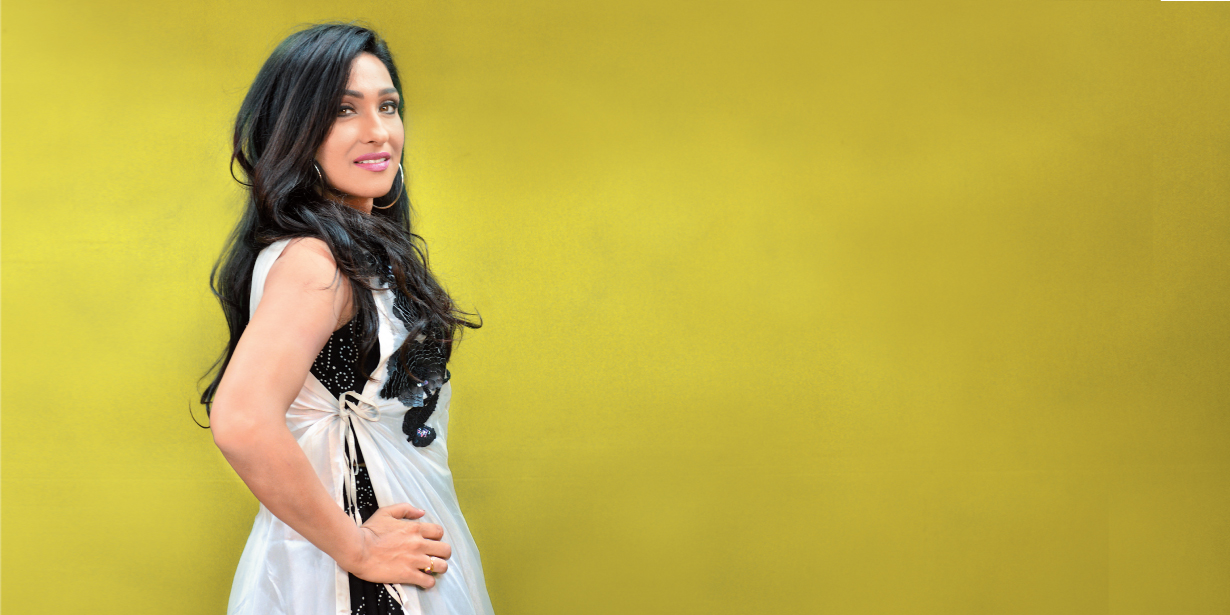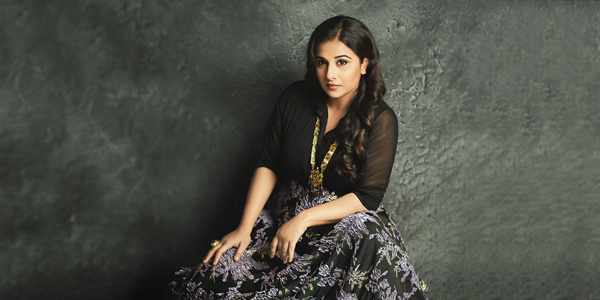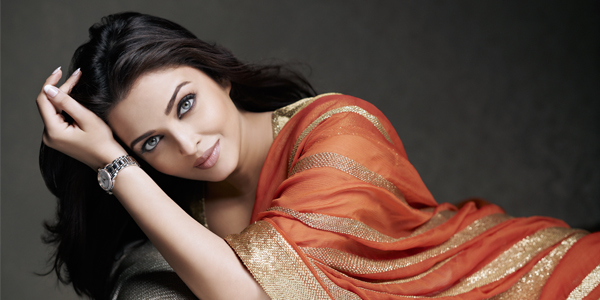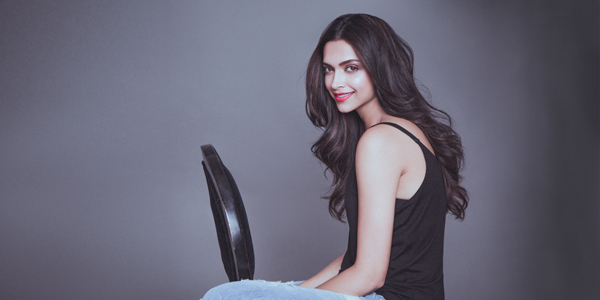Why Rituparna Sengupta is the queen of versatility
Destiny and well-thought-out choices shot Rituparna Sengupta to the top slot in the Bengali film industry, her queendom for over two decades
There is a flurry of activity inside the quaint studio on Picnic Garden Road in Kolkata. Outfits are getting readied for the next shot, and the camera and lights are being set up. Makeup and hair stylists deliberate upon the final look, while dialogue writers fine tune the lines. Sitting calmly amid this chaos is one of Kolkata film industry’s most iconic stars, Rituparna Sengupta. She gives us a warm smile as her manager introduces us. “May I finish this ad shoot and then begin the interview?” she asks us courteously. She and Arifin Shuvo, co-star for her next film Ahaa Re, are shooting ads for a couple of local brands.
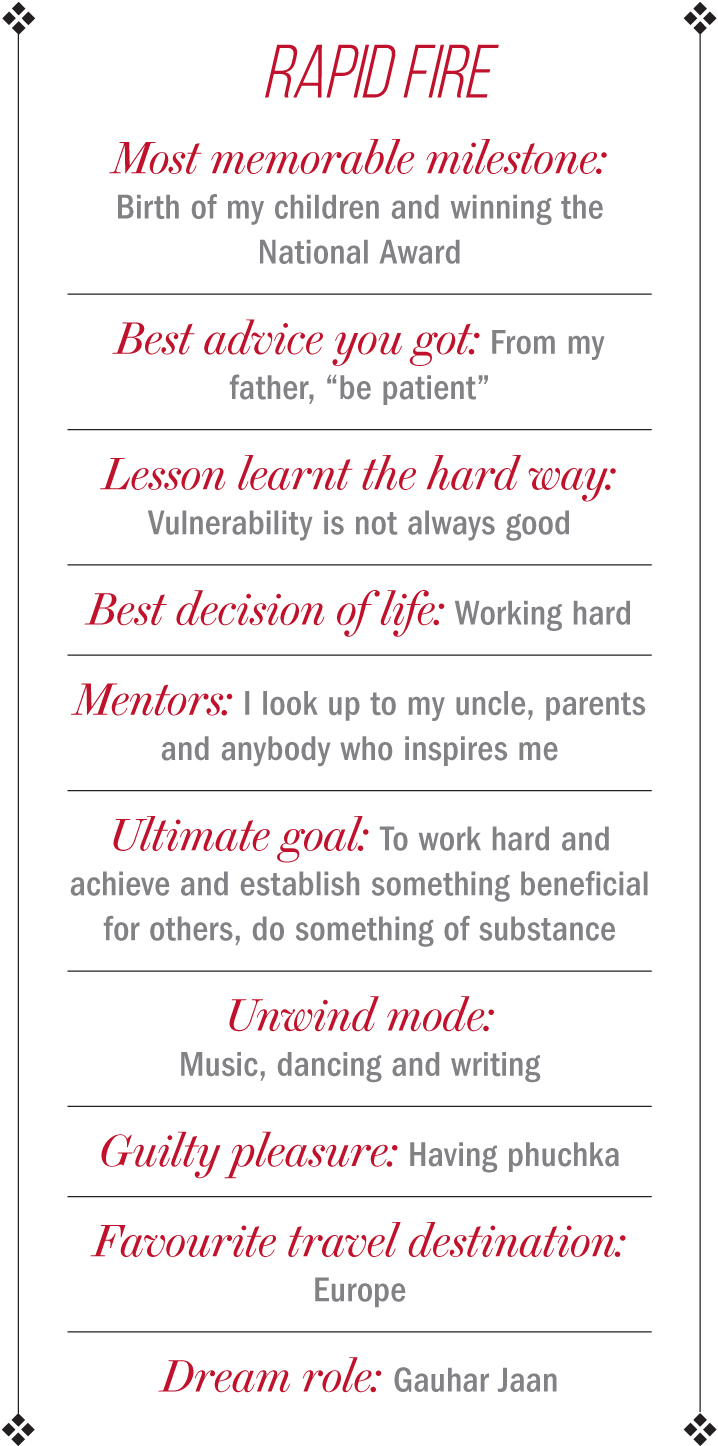 Sengupta meticulously delivers her lines, which end with the message: “Shudho khao, Shushto thako” (Eat pure, stay healthy) till she believes she has perfected it. Perhaps it is this dedication and willingness to keep improving that has enabled her to rule the roost in the entertainment industry for over two decades. From essaying the pain and anguish of a widow in Aparna Sen’s Paromitar Ek Din to playing the role of a prostitute in Buddhadeb Dasgupta’s Mondo Meyer Upakhyan, Sengupta’s filmography is extensive as well as diverse. She is among the few actors who have won both critical acclaim (with Bela Seshe) as well as commercial success (with Sasurbari Zindabad). And that, inarguably, is a difficult balance to achieve.
Sengupta meticulously delivers her lines, which end with the message: “Shudho khao, Shushto thako” (Eat pure, stay healthy) till she believes she has perfected it. Perhaps it is this dedication and willingness to keep improving that has enabled her to rule the roost in the entertainment industry for over two decades. From essaying the pain and anguish of a widow in Aparna Sen’s Paromitar Ek Din to playing the role of a prostitute in Buddhadeb Dasgupta’s Mondo Meyer Upakhyan, Sengupta’s filmography is extensive as well as diverse. She is among the few actors who have won both critical acclaim (with Bela Seshe) as well as commercial success (with Sasurbari Zindabad). And that, inarguably, is a difficult balance to achieve.
“I never got anything on a platter. I have struggled my way up. So when choosing a film, I ensure that my character sketch is fresh. It shouldn’t be a repetition of my previous role, should have a meaningful place in the film and should be important not just for the film, but even for society,” says Sengupta, finishing her shoot and settling down for a chat. At the same time, she adds, “Nothing could or can be orchestrated. I was destined to be an actor. Que sera sera.”
Films Beckon
Acting happened by accident for Sengupta, who says that she had always dreamt of being a teacher. “I come from a simple, middle class family,” says Sengupta, who was born in Kolkata. Her father worked in a pharmaceutical company in a senior post while her mother was a homemaker. Like any Bengali family, Sengupta too was enrolled in classes for drawing and music. But the one thing which had her hooked was dance. “I learnt Odissi and Manipuri from a very young age and participated in numerous cultural activities in school (Carmel Convent School) and college (Lady Brabourne College),” she says.
It was through one of her dance performances in college that she landed a role in a television series in the early 90s. “One of my friends’ elder brothers was working on a television series on fairy tales in Bengali language. My friend clicked some pictures of mine during the performance and showed it to him. He offered me a role in the series,” she recalls. Her first reaction, naturally, was of disbelief. But despite her father’s apprehension, Sengupta went ahead and worked in the series. “It was just a two-day shoot, so it was meant to be fun,” she adds. She still vividly remembers her first shot. “It was early in the morning and I had to walk in the fields. I was a dancer, so bringing expressions to my face wasn’t a problem. Camera is something you need to get used to. But overall, it was a whole new world. They gave me dresses, someone was doing my hair, someone else my makeup,” she says.
After the series aired, Sengupta was noticed by many in the industry, including veteran filmmaker Prabhat Roy’s wife, who recommended her name for his next film starring Sen. “My father was not very happy with this and kept insisting that I have to study first. But I convinced him that I will study along with acting. I do not know why, but I was just drawn towards this,” she says.
She soon began shooting for Roy’s film, Shet Patharer Thala, and through it, also got the first taste of ‘stardom’. “Whenever I went to college, the girls flocked around me and asked me to narrate all the stories from the set — what do they talk, how do they walk, do they eat at all? There was not much media coverage then, so there was a lot of mystery around stars,” she recalls with a laugh.
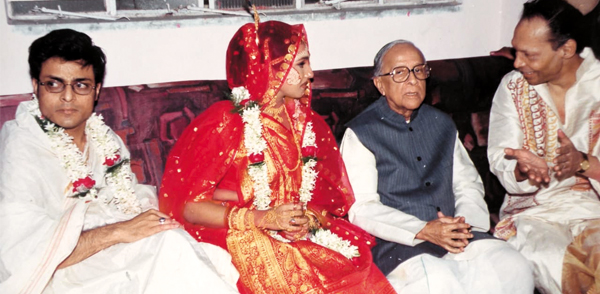
In 1992, Shet Patharer Thala opened to a roaring success and won numerous accolades, including the National Award for Best Film. Sengupta’s character, though not central, was widely appreciated, and she was flooded with offers. By then, she was certain that she would take up acting as a profession. After completing her bachelor’s degree in history (honours), she began sifting through the scripts that came her way.
“Then there was buzz around me that ‘there is a new girl, but she is too fair, light eyed, her voice is shrill. How can she become a heroine?’ But without giving it much thought, I charted my own journey,” she says. She then worked in films across languages including Bengali (Abujh Mon), Telugu (Ghatotkachudu) and, eventually, Hindi (Main, Meri Patni Aur Woh), to name a few. There were, of course, hits and misses at the box office, but what remained steady was her knack for identifying strong roles and unique films.
Carving a Niche
While Sengupta relished the experience of working across multiple film industries, she remained focused on building a substantial body of work in Bengali cinema. “I have very high regard for Roy because he introduced me in the films. Then Rituparno Ghosh took me little further with his films and introduced me to a whole new range of cinema,” she says. Ghosh’s ability to create films that engage the Bengali intelligentsia allowed Sengupta to explore her characters in greater detail. “I started believing in my characters and living my roles,” she says.
Take for instance Dahan, directed by Ghosh, which is among the biggest hits in her career. In the film, Sengupta plays the role of a homemaker suffering domestic abuse. It not only won her the National Award, but also helped people look beyond her beauty and recognise her considerable acting talent. “It was the ultimate glory,” she says.
From there on, Sengupta swiftly moved to superstardom. Be it Aniruddha Roy Chowdhury’s Anuranan and Suman Mukhopadhyay’s Mahanagar@Kolkata, or Srijit Mukherji’s Rajkahini and Kaushik Ganguly’s Drishtikone, Sengupta’s films always had a strong female character, much before it became the norm. She also created a superhit pairing with Prosenjit Chatterjee, delivering multiple commercial hits with him.
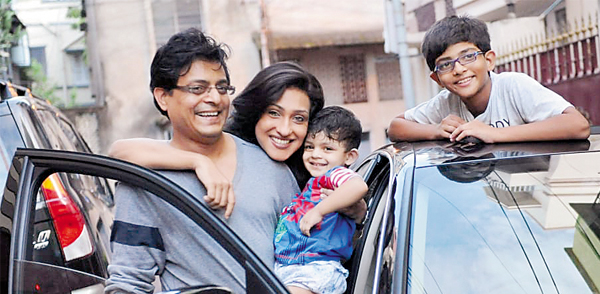
“Suddenly I felt everyone is trying to reach me, is inquisitive about me and wants to work with me. Whenever I walked in, everybody was coming towards me. That is when I felt something has changed,” she says. At the same time, she ensured that she doesn’t go behind just the big names in the industry. “My strength is my hard work. I never believed in lobbies or being attached to big production houses. I have done a lot of independent cinema and worked with a lot of new actors and directors, including in my latest film,” she says.
Balancing Act
Sengupta got married to her childhood friend Sanjay Chakrabarty in 1999, a big step during the time as the perception was that after marriage, actresses were not offered plum roles. The couple has two children, Rishona Niya Chakrabarty and Ankan Chakrabarty. Sengupta, however, doesn’t see it as a bold decision. “Marriage is very beautiful and it is something that happens. You cannot design it,” she says simply.
What she does admit is the challenges that showbiz throws up in managing personal and professional lives. “In our profession, it is very easy to be misunderstood because we are constantly exposed to a different world, act with male co-stars, talk to a 100 people. You are always under public glare… there is speculation and ill will. You have to really cope with this.” Rumours of link-ups and bold scenes might make the partner uncomfortable, but as Sengupta said in several interviews, “the best part of our relationship is that we have understood and accepted each other’s shortcomings.”
She says that movies can be an addiction, with resultant highs and lows. “When you are high, it is fine, but when you are addicted and you aren’t getting any feedback, then you tend to get depressed.” With time, she has learnt to adopt a zen-like attitude. She diverts her mind with other pursuits such as writing, painting or putting together a musical.
She is also working on a project that fulfills her dream of teaching. “I still feel that my teaching skills would have been good! I can always share my knowledge, from this field, with newcomers. I am planning to do something along that line,” she says, without divulging details. She has multiple films coming up, having just finished Mukherji’s Shah Jahan Regency. Also on the cards is director duo Shiboprosad Mukherjee and Nandita Roy’s Belashuru and Reshmi Mitra’s next.
There is a lot to be done, and Sengupta shows no signs of fatigue. “I am a workaholic. I have never believed in sitting idle and saying bohot hogaya. My life should inspire others,” she says. And that, as the audience and critics will agree, is a goal long accomplished.
